Guest Blog: Merrie Destefano
Organic World Building, Or Avoiding The Stereotypical Speculative Fiction Wormhole
by Merrie Destefano
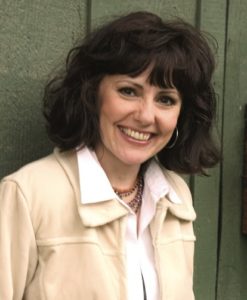 With twenty years’ experience in publishing, Merrie Destefano left a 9-to-5 desk job as the editor of Victorian Homes magazine to become a full-time novelist with HarperCollins. Her first novel, Afterlife: The Resurrection Chronicles, is available now and her second novel, Feast: Harvest of Dreams, releases on June, 28, 2011. She loves to camp in the mountains, walk on the beach, watch old movies and listen to alternative music—although rarely all at the same time. Born in the Midwest, she now lives in Southern California with her husband, their two German shepherds and a Siamese cat.
With twenty years’ experience in publishing, Merrie Destefano left a 9-to-5 desk job as the editor of Victorian Homes magazine to become a full-time novelist with HarperCollins. Her first novel, Afterlife: The Resurrection Chronicles, is available now and her second novel, Feast: Harvest of Dreams, releases on June, 28, 2011. She loves to camp in the mountains, walk on the beach, watch old movies and listen to alternative music—although rarely all at the same time. Born in the Midwest, she now lives in Southern California with her husband, their two German shepherds and a Siamese cat.
– – –
To get this party started, I’m going to give away a signed copy of my novel, Afterlife: The Resurrection Chronicles, to one of the people who posts a comment below. [Drawing to be held and winner announced, a week from today.]
– – –
Everything seems to be going organic lately—from produce in the grocery store to fabrics in your clothing to ingredients in your soap. Even books, which seemed pretty organic to me to begin with since they were made from paper, are now available in a more earth-friendly version—electronic. Personally, as a health nut and a person with multiple allergies, I like this organic revolution and I hope it’s here to stay.
But what about your writing?
What if you took this whole organic process a step further and applied it to your writing, especially as it relates to world building? Most of the readers of this blog either read or write science fiction and fantasy, so to us, world building is crucial to creating a believable story, right? When we buy a book, we expect the world to have a natural, realistic, believable structure or we don’t want to read it. And that’s the last thing we, as writers, want—for someone to put down our book because one element didn’t ring true.
So, below is a list of some of the organic, world-building rules that this writer tries to live by:
1. Set up your world so that it can have a natural evolution. For instance, try changing just one thing within our existing world—like P.D. James did in The Children of Men, where suddenly, no one could have children—then see how, over time, that one change could affect everything else in the world.
 2. These changes could be subtle or they could be drastic. But spend time considering how this one change could effect our culture, from politics to religion to social mores. In my book, Afterlife, I created a technology where we could resurrect instead of die and this had a trickle-down effect on nearly everything, including major world religions. I didn’t realize it until I started working on the book, but death is a very significant part of our lives.
2. These changes could be subtle or they could be drastic. But spend time considering how this one change could effect our culture, from politics to religion to social mores. In my book, Afterlife, I created a technology where we could resurrect instead of die and this had a trickle-down effect on nearly everything, including major world religions. I didn’t realize it until I started working on the book, but death is a very significant part of our lives.
3. Reveal these changes to the reader. But do it carefully, gently, clue by clue, throughout your story. Reveal the world in bits and pieces, a little snippet here and there. Make it a mystery and remove the veil, one layer at a time. This way the reader is never overwhelmed or pulled out of the story. Remember, story is king. All the pretty writing and deep, tortured characters in the world cannot replace story.
4. Please note that your characters should not be surprised by this different world. They won’t be amazed by flying cats or talking squirrels. With the exception of a visitor from another time or world, your characters will have lived in this world for their entire lives. If anything, they will be jaded, weary, frustrated and irritated by it—not surprised. Just like we get irritable when we’re stuck in traffic, they might get irritable if they have to wait two weeks for a skin graft that would allow them to grow a third arm.
5. Your metaphors and similes must be in keeping with your new and different world. For instance, you can’t use a phrase like, “The days flew past, like pages turning in a great book,” if your story takes place in a culture where everything is written on scrolls. Likewise, if your main character is a dog who lives on Venus, he isn’t going to think about Astro on the Jetsons.
6. When built correctly, your world should have a domino effect. One thing will cause another thing to happen and so on. Keep the big picture in mind at all times. Even though you may be writing a story that feels like a microcosm—because it involves only a few characters and takes place over a few days in time—remember that there is always a macrocosm lurking behind it. Both pictures, big and small, need to be believable and they need to work together. For instance, you can’t have an apocalyptic world where zombies have taken over, without addressing how humans are still getting their food supply. If zombies are everywhere, we wouldn’t still have items like bread, because grain requires large open fields and these fields would be nearly impossible to guard and/or harvest.
So, there you have it. My six, handy-dandy, world building tips. What about you? What writing rules do you try to live by when world building? And how do you avoid that stereotypical speculative fiction wormhole: the information dump?
And to Becky and the rest of the Speculative Fiction staff, thank you so much for inviting me here today!


































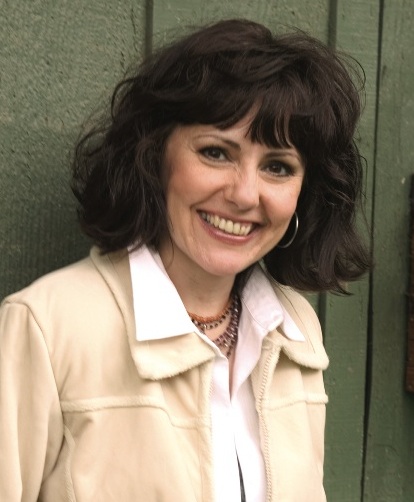
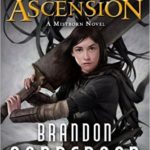
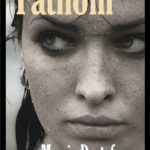

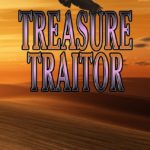




Great article, Merrie! Would you believe, your book was next up on my reading stack but my Mum snatched it up and devoured it. It’s still down at her place so I have to go get it back – she loved it!
Thanks for those great points. I especially apprecite the thought of first creating a macrocosm view of the fantasy world before populating it with characters who have things to do. Underlying the world must be a worldview and a history, and those things make the book so real. It makes me think of Dune, and how believable the planet Arakis was, and when you read in the appendix about the history and development of the ecology of the world, it shows the author spent a lot of time building that foundation.
Well, I too would love a copy of the book, but I will glad ly buy one if I don’t win a free one 🙂 CAn’t wait to read all your books! sulakin AT comcast.net
Excellent words of advice Merry 🙂
Becky,
Thanks so much for inviting me here today!
Grace,
How cool! I hope both you and your mom enjoy the book. =)
Susanne,
Wow, you referenced an awesome book when it comes to world building–Dune. I loved that it even had a very detailed religious system, something that often gets ignored or overlooked or forgotten when some writers build their worlds.
Morgan,
Thanks for stopping by! 🙂
[…] This post was mentioned on Twitter by Speculative Faith, Merrie Destefano. Merrie Destefano said: Tips for SciFi/Fantasy Writers on Organic World Building: http://bit.ly/hfnNVT << Guest blog post with AFTERLIFE giveaway […]
Merrie,
I think the most intriguing idea you mentioned in your rules is that of small changes trickling down through the entire society. It makes me want to sit down and devise a story centered around one small change; in fact a friend of mine and I had a conversation just the other day about the small things in life and how they affect us more than we realize.
As for personal rules, I have to say that I live by the rule of drawing on myth and legend, although other than that I haven’t really set out my own personal Code. One set of rules I’ve come across recently though is that of Kurt Vonnegut; I found that in general I have followed his rules without knowing of them. Among them are to write for one person (i.e. myself or God) and to allow bad things to happen to the characters so that the readers will see what the characters are made of.
This sounds like a great way to approach world-building. Thanks!
In my WIP, the MC is an outsider, so she’s learning about the world at the same time as the reader.
What a fabulous post, thank you! World building, to me, is one of the elements of great storytelling and one of the things that makes me fall head over heels in love with a book. You’ve nailed it with these pointers. Cheers!
-Sara
Fantastic post. It’s what makes a good novel great.
Alyssa,
Thanks! I’m really glad you stopped by.
=)
“Reveal the world in bits and pieces, a little snippet here and there. Make it a mystery and remove the veil, one layer at a time.”
I still haven’t quite nailed this part down – the non-info-dump part of building a world that is different from our own. But I love your tips for world building 🙂 Thank you for posting!
Rebecca,
Hi! I’m glad you like the tips. Maybe you could try seeing the world through your MC’s POV. Imagine how he or she would feel about everything. But you’re right, it is a bit tricky. I hope these tips help a bit. =)
If you keep in mind that the new world is a mystery to be unfolded slowly, it helps keep you stingy. You end up giving out a bite at a time, and saving better parts for later.
And nothing pisses me off like a world that makes no sense. It has to be like the law; something a reasonable person would say, “Okay, I’ll buy that.”
[…] http://www.speculativefaith.lorehaven.com/2011/01/guest-blog-merrie-destefano/ Read the rest here. a2a_linkname=document.title;a2a_linkurl="http://kimkouski.com/creating-the-fantasy-world";a2a_onclick=1; Fantasy Stuff, Writing Stuff fantasy world building, Merrie Destefano, Speculative Faith […]
Wow. Some awesome comments here.
Shastastwin,
I love your personal rules for writing. thanks for sharing them.
Jamie,
The MC as an outsider is definitely a great way to show a different world.
Sara,
Thanks so much for stopping by! I always enjoy hearing what makes an agent fall in love with a book. =)
[…] for writers of speculative fiction but helpful to any fiction writer, I think—visit Speculative Faith (and if you leave a comment, you’ll be eligible to win a free copy of the author’s […]
Great stuff! Thank you for the tips, Merrie. I’m in process of writing my first book, and I have several of those “dump” description documents for my own reference while I write. As much as I’d love to Tell what this fantasy world is like, I know I need to figure out how to Show it. Your points will be very helpful to this end; and to maintaining believability, continuity, and suspense. Thank you very much!
– Patrick
Thank you for sharing these tips! One of the reasons I love fantasy (both reading and writing) is because of the opportunity it affords to escape, to immerse oneself into a different world–and that world must be believable or it shatters the entire experience. You have done a good job of summing up ways to make sure that doesn’t happen. Good stuff to remember!
Also, your book sounds fascinating. Thanks for the chance to win a copy.
I read similar advice in a book (can’t remember the name) on writing in the speculative genre. The book’s advice centered around creating belivable aliens, and how small changes in a lifeform’s enviornmnet could mean huge changes in alient biology, culture, and society. The whole discussion reminds me of a little developed but fascinating subgenre: alternative history. There’s a real case study of making a small change and trying to anticipate all the consequences of that change. There are of course the obvious timelines authors go after (the civil war, or World War II), but I really enjoy the alt timelines that go for more obscure or less popular changes. What if the Chinese had spent more time colonizing the New World, moving from West to East? What if the Crimean War had ended differently, or if the Dutch had kept power over England after the Glorious Revolution (taking the King Georges out of the picture)? These questions require a complete rethinking of our world while keeping true to certain concepts of inevitability (the discovery of electiricty, the taming of flight): it’s not so much whether certain inventions, innovations, or even wars will happpen, but how they occur.
Very good points you can never get to many great advice:-)
I don’t see where a winner was announced today. Was it only announced to the winner? Or did I miss it somehow?
[…] News Announcement Merrie Destefano, a guest poster at Spec Faith a couple weeks ago, is holding a contest for a free copy of her next book, […]